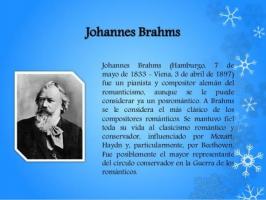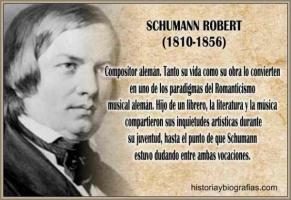The MOST outstanding CLASSICISM COMPOSERS

Image: Musical Resources
In every discipline there comes a time when excellence is such that a series of exemplary bases are consolidated and passed on to posterity. This is what we call "classic." In the case of music, the time of classicism it represents precisely that, a crucial period in the development of the foundations of classical music. Every age has heroes, figures who were innovative at the time and who would later become exemplars for millions. In this article by a TEACHER we will talk about these characters, the composers of musical classicism.
Classicism took place at mid 18th century, approximately between 1750 and 1820, being Vienna the most powerful broadcasting center, followed by Paris, Berlin and Mannheim.
Socially, music happens to be broadcast mainly by the public of the bourgeoisie, since in previous times, "cultured" music was a heritage mobilized mainly by the aristocracy. This caused an increase in the popularization of music to the general public and internationally.
Musically, the music of classicism is characterized by being very transparent, with clear textures, a lot of symmetry and solid tonality. Unlike the baroque style, naturalness is sought and excesses are rejected. It is at this time that the classic models par excellence of forms such as the symphony and the sonata are established.

Image: Slideshare
We are already beginning to get to know the most outstanding composers of musical classicism. Next we will leave you a list with the main names of this movement so that you know them better.
Joseph Haydn (1732 - 1809, Austria)
Harpsichordist and pianist, he spent much of his career serving as a musician to the powerful Estherházy family. His most important contributions were in the development of chamber music and the piano trio. Haydn is sometimes referred to as "the father" of the symphony and string quartet. In addition to occasionally serving as his mentor, Haydn was friendly with Mozart and was also Beethoven's teacher. Haydn composed the melody for what is today Germany's national anthem. ("Kaiserlied").
Important works: Symphony No. 100 and 101, Deutschlandlied.
Wolfgang Amadeus Mozart (1732 - 1791, Austria)
Mozart is one of the most important composers of musical classicism. Perhaps the most celebrated and recognized composer in the history of classical music, recognized as a child prodigy and genius. At the age of 5 he already had great dexterity on the keyboard (piano and harpsichord), on the violin and even in composition. Despite his short life (35 years), Mozart has an impressive number of more than 600 works to his name, many considered the pinnacle of symphonic music. In terms of personality, Mozart was known as a warm, playful and charismatic character. One of Mozart's last compositions was his own Requiem, which would remain unfinished due to his death.
Important works: Serenade No.13, The Magic Flute, The Marriage of Figaro, Requiem, Symphony No.40.
Ludwig Van Beethoven (1770 - 1827, Austria)
In addition to his excellence as a musician, Beethoven was known for having a strong character. His deafness in the last years of his life is also a popularly known topic. Beethoven is acclaimed for his symphonies, having created 9 that brought him (and continue to bring him) international popularity. Beethoven took part of the classicism, but it also stood out later, in the time of the romanticism.
Important works:Third Symphony "Heroic", Fifth Symphony and Ninth Symphony, whose fourth movement is based on the "Ode to Joy".
Luigi Cherubini (1760 - 1842, Italy)
Italian composer, mostly of lyrical works, including melodramas and operas. He settled in Paris, where he gained further recognition and also traveled to Vienna, where he conducted "Fanista", which was very well received by musicians such as Beethoven and Haydn. Many other of his works are religious in nature. In the last years of him he devoted himself mainly to teaching.
Important works:Medea, The two days, Requiem in C minor.
Christoph Willibald Gluck (1714 - 1787, Austria):
He is considered one of the most important opera composers of his time. He made crucial reforms in the musical form and structure of the opera. His most powerful contribution was the refocusing on the importance of plot in opera, poetry over stage production.
Important works: Orpheus and Eurydice, Alcestes, Iphigenia in Aulis, Iphigenia in Tauris Armida.
Antonio Salieri (1750 - 1825, Italy):
Saliere is another of the most important composers of musical classicism. Composer and conductor, author of 39 operatic works. Salieri was a master of names that would later have a great impact on musical history, among them Beethoven, Schubert, Liszt, Czerny and Hummel. In addition to his merits, Salieri gained unfortunate popularity for a unproven rivalry with Mozart, to the point that he has been accused of being responsible for his death.
Important works:L'Europa riconosciuta, Le donne letratte, Faltstaff.
We could not tackle an article with the composers of musical classicism without mentioning Bach. For many, Johann Sebastian Bach (1685 - 1750, Germany) is "The god" of classical music. His work was the climax of the Baroque era and the highest example of beauty, technical perfection, symmetry and musical intellectuality. Bach had two marriages and 20 children, of which 4 were great contributors in the history of music. That is why the Bach family is known as one of the most outstanding musical families of all time.
In this specific article, we mention some of his relatives, which were an important part of the era of musical classicism.
Carl Philipp Emmanuel Bach (1714 - 1788, Germany)
The second son of Johann Sebastian Bach, for many the most prolific. He is recognized as one of the founders of the classical style and as the last great master of the harpsichord (until the 20th century), being for a period the most important harpsichordist in Europe. He has more than 800 compositions in his name, most of which are for keyboards.
Important works:Concerto for two harpsichords, Magnificat in D major, Five Berlin Symphonies.
Johann Christoph Friedrich Bach (1732 - 1782, Germany)
The fifth son of Johann Sebastian Bach, he was tutored directly by his father and carried out his work mainly in Germany. He composed 20 symphonies (unfortunately more than half were lost during the Second World War) among other works and is for many, the son of Bach most faithful to the classicist style.
Important works:The childhood of Jesus, Cassandra, Concerto grosso in E flat.
Johann Christian Bach (1735 - 1782, Germany)
The eighteenth son of Bach. In contrast to his brother Carl Philipp Emmanuel, he reached his greatest popularity in Milan and London, hence his nickname "The Bach of London." He was an organist and had Mozart as a student. He excelled in the forms of opera and symphony.
Important works: Lucio Sila, Themistocle, The nine muses.
Wilhelm Friedrich Bach (1759 - 1845, Germany)
Grandson of Johann Sebastian Bach, son of Johann Christian Bach. Wilhelm was the last bearer of the surname of the Bach family, being the only grandson of Johann Sebastian. She was a student of her uncle Carl Philipp Emmanuel. Symphonies, cantatas and chamber music stand out in her works.
Important works:Lucio Sila.
Maria Anna Mozart she was the older sister of Mozart, an excellent pianist, harpsichord and singer. Maria Anna or "Marianne" she considered herself, like her brother, a child prodigy and she was frequently called upon to interpret. There is evidence that she also wrote musical works, since hers, her brother, praised her compositions in the letters they sent to each other. Despite her talents, her position as a woman at the time did not allow her to advance in her artistic career.
It is thanks to these characters and many others that we can gain a valuable musical foundation and know where to turn to advance and continue to innovate in such a broad art.
If you liked reading this article by a PROFESSOR and have learned about classical composers musical, we invite you to leave a comment and to continue exploring the rest of the articles we have for offer you.



